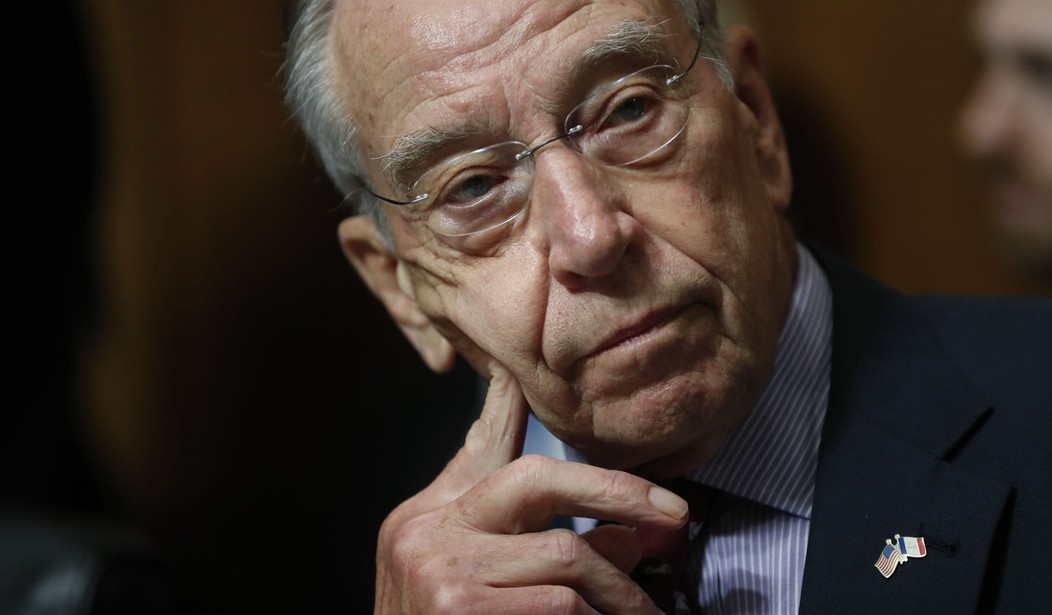A group of senators from both political parties are considering legislation that would require greater transparency from government agencies through Freedom of Information Act (FOIA) requests. Because of a recent Supreme Court ruling, the Department of Interior (DOI) and the Environmental Protection Agency (EPA) have been able to deny FOIA requests, The Hill reported.
Back in December, DOI proposed a new rule, dubbed an "awareness review," that allows political appointees to see requests related to them before they're released to the FOIA requester.
A few weeks ago, the EPA released a new rule that gives even more political appointees the ability to approve or deny FOIA requests. Here's the kicker: there was no comment period because the agency felt the changes were unsubstantial.
According to Sean Moulton, a senior policy analyst at the Project on Government Oversight, the EPA rule change is unusual.
“In my 20 years of working on FOIA policy I’ve never seen an agency do a FOIA regulation change without public comment,” Moulton told Roll Call. “In terms of the process, that’s incredibly troubling. They are inviting and accepting no public input.”
Members of Congress have taken issue with this and want to create a legislative fix.
“In a self-governed society, the people ought to know what their government is up to," Sen. Chuck Grassley (R-IA) said.
Back in June, Grassley spoke about this issue on the Senate floor.
“Transparency laws like the Freedom of Information Act help provide access to information in the face of an opaque and obstinate government. Unfortunately, a recent Supreme Court ruling and new regulations at EPA and the Department of Interior are undermining access,” he explained. “The public’s work ought to be public. So, I’m working on legislation to address these developments and promote access to government records.”
Recommended
Sen. Ed Markey's (D-MA) office is also looking into legislative fixes.
“We are exploring our options, including legislative, to limit awareness review and supplemental awareness review,” Markey's spokesperson told The Hill.
Other Senate Judiciary Members, including Patrick Leahy (D-VT), John Cornyn (R-TX), and Dianne Feinstein, have taken issue with federal agencies hiding what's taking place inside their organization. Back in March, Grassley, Leahy, Cornyn, and Feinstein wrote a letter to the Justice Department’s Office of Information Policy over "recent trends in FOIA compliance and reports indicating a continued culture of reflexive secrecy across the government."
From the letter:
According to the Justice Department’s most recent aggregate statistics, the government in FY2017 processed the highest number of FOIA requests ever, with an 8.3% increase over FY2016. However, it was reported that requesters received censored files or nothing at all in 78% of requests, a record over the past decade.[ The number of FOIA lawsuits also continues to break records. In FY2018, a record-high 860 FOIA lawsuits were filed against agencies, representing a 67% increase in filings compared to the final year of the Obama administration.[ The Justice Department, for example, was sued more frequently under FOIA than ever before. Further, we have recently seen proposed updates to agency FOIA regulations that appear to restrict, rather than encourage, public access to records, and could delay the processing of FOIA requests.
Furthermore, FOIA processing delays and backlogs continue to grow unchecked. The average processing times at many agencies are hundreds of days longer than the 20-day response time established by law. Some pending FOIA requests are even decades old. Making matters worse, there are a number of agencies with tens of thousands of backlogged FOIA requests.
The Senate Committee on the Judiciary, of which we are members, has jurisdiction over FOIA. Compliance with FOIA’s statutory requirements, including the 2016 amendments, is necessary to ensure that the public can fully exercise its right to know.

























Join the conversation as a VIP Member